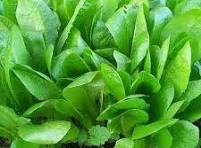இயற்கையின் பொக்கிஷம் - காசினி கீரை | Nature's Treasure - Kasini Keerai
by: Harshini, March 31, 2025

"காசினி கீரை" (Kasini Keerai) என்பது ஆங்கிலத்தில் சிகோரி (Chicory) என்று அழைக்கப்படும் ஒரு பச்சை இலை காய்கறியாகும். இதன் தாவரவியல் பெயர் Cichorium intybus. இது பொதுவாக தென்னிந்தியாவில், குறிப்பாக தமிழ்நாட்டில், உணவு மற்றும் மருத்துவ பயன்பாட்டிற்காக பயன்படுத்தப்படுகிறது. காசினி கீரை கிராமப்புறங்களில் "கானாம்கோழி கீரை" என்ற பெயரிலும் அறியப்படுகிறது, இது காலப்போக்கில் மருவி "காசினி" ஆனது.
தோற்றம் மற்றும் வளர்ச்சி
காசினி கீரை முள்ளங்கி கீரையைப் போலவே பார்ப்பதற்கு இருக்கும், நீண்ட, சற்றே கூர்மையான விளிம்புகளுடன் காணப்படும். இது குளிர்ச்சியான மலைப்பிரதேசங்களில் நன்கு வளர்கிறது. தமிழ்நாட்டில் கொடைக்கானல், ஏற்காடு, சேர்வராயன் மலை போன்ற இடங்களில் இது அதிகளவு பயிரிடப்படுகிறது. இந்தியா, சீனா, தென் அமெரிக்கா, ஆஸ்திரேலியா போன்ற நாடுகளிலும் இது பரவலாக வளர்க்கப்படுகிறது.
ஊட்டச்சத்து மதிப்பு
காசினி கீரை ஊட்டச்சத்துக்களால் நிறைந்தது:
- வைட்டமின்கள்: A, B, C
- தாதுக்கள்: கால்சியம், பாஸ்பரஸ், இரும்புச்சத்து
- வேதிப்பொருட்கள்: இனுலின், லாக்டுசின், குமாரின், பிளேவோனாய்டுகள் போன்றவை
இதன் வேர்ப்பகுதியிலிருந்து "சிக்கரி" (chicory) பொடி தயாரிக்கப்படுகிறது, இது காபியுடன் கலந்து சுவையை மேம்படுத்த பயன்படுகிறது.
மருத்துவ பயன்கள்
காசினி கீரை பல நூற்றாண்டுகளாக பாரம்பரிய மருத்துவத்தில் பயன்படுத்தப்படுகிறது. சில முக்கிய நன்மைகள்:
- செரிமான ஆரோக்கியம்: இதில் உள்ள நார்ச்சத்து செரிமானத்தை மேம்படுத்தி மலச்சிக்கலை தடுக்கிறது.
- நீரிழிவு கட்டுப்பாடு: இன்சுலின் சுரப்பை ஊக்குவிப்பதால் சர்க்கரை நோயாளிகளுக்கு பயனுள்ளது.
- உடல் எடை குறைப்பு: குறைந்த கலோரி மற்றும் அதிக நார்ச்சத்து உடல் எடையை கட்டுப்படுத்த உதவுகிறது.
- கல்லீரல் மற்றும் சிறுநீரக ஆரோக்கியம்: கல்லீரல் வீக்கத்தை குறைத்து, சிறுநீரக கற்களை கரைக்கும் தன்மை கொண்டது.
- புண்கள் மற்றும் வீக்கம்: கீரையை அரைத்து புண்களில் பற்று போடுவதால் விரைவில் குணமாகிறது.
- பெண்களுக்கு நன்மை: வெள்ளைப்படுதல், அதிக உதிரப்போக்கு போன்ற பிரச்சினைகளுக்கு மருந்தாகிறது. (உலர்ந்த பொடியை தேனுடன் சாப்பிடலாம்.)
பயன்படுத்தும் முறைகள்
- உணவு: கூட்டு, சூப், சாலட் ஆகியவற்றில் சேர்க்கலாம்.
- பொடி: கீரையை நிழலில் உலர்த்தி பொடியாக்கி, வெந்நீர் அல்லது பாலுடன் கலந்து குடிக்கலாம்.
- கஷாயம்: சீரகம், மஞ்சள் சேர்த்து காய்ச்சி குடிக்கலாம்.
சுவை:
காசினி கீரை சற்று கசப்பு சுவை கொண்டது, ஆனால் இந்த கசப்புத்தன்மையே அதன் மருத்துவ குணங்களுக்கு காரணமாகிறது.
கிடைக்கும் இடம்:
இது எல்லா பருவங்களிலும் கிடைக்காது என்பதால், பொடி வடிவில் நாட்டு மருந்து கடைகளில் வாங்கலாம் அல்லது வீட்டிலேயே தயாரித்து வைத்துக்கொள்ளலாம்.
காசினி கீரை ஒரு "இயற்கையின் பொக்கிஷம்" என்று அழைக்கப்படுவதற்கு ஏற்றவாறு, உடல் நலத்திற்கு பல வழிகளில் பயனளிக்கிறது. இதை உங்கள் உணவில் சேர்த்து பயன்பெறலாம்!
எங்களின் காசினி கீரை பொடி வாங்க: காசினி கீரை பொடி - Kasini Keerai Podi
"Kasini Keerai" is the Tamil name for chicory, a green leafy vegetable. Its botanical name is Cichorium intybus. It is commonly used in South India, especially Tamil Nadu, for both culinary and medicinal purposes. In rural areas, it is also known as "Kanaamkozhi Keerai," which over time evolved into "Kasini."
Appearance and Growth
Kasini Keerai resembles radish leaves in appearance, with long, slightly sharp-edged leaves. It thrives in cool, hilly regions. In Tamil Nadu, it is widely cultivated in places like Kodaikanal, Yercaud, and the Shevaroy Hills. It is also grown extensively in countries like India, China, South America, and Australia.
Nutritional Value
Kasini Keerai is rich in nutrients:
- Vitamins: A, B, C
- Minerals: Calcium, Phosphorus, Iron
- Compounds: Inulin, Lactucin, Coumarin, Flavonoids, etc.
The root of this plant is used to make "chicory" powder, which is mixed with coffee to enhance its flavor.
Medicinal Benefits
Kasini Keerai has been used in traditional medicine for centuries. Some key benefits include:
- Digestive Health: Its fiber content improves digestion and prevents constipation.
- Diabetes Control: It stimulates insulin secretion, making it beneficial for diabetic patients.
- Weight Loss: Low in calories and high in fiber, it helps manage body weight.
- Liver and Kidney Health: It reduces liver inflammation and has properties that help dissolve kidney stones.
- Ulcers and Inflammation: Applying a paste of the leaves to ulcers speeds up healing.
- Benefits for Women: It helps with issues like leucorrhea and excessive bleeding. (Dried powder can be consumed with honey.)
Uses
- Food: It can be added to dishes like kootu (stew), soup, or salad.
- Powder: The leaves can be dried in the shade, powdered, and mixed with hot water or milk for consumption.
- Decoction: Boil it with cumin and turmeric to make a medicinal drink.
Taste
Kasini Keerai has a slightly bitter taste, but this bitterness is what contributes to its medicinal properties.
Availability
Since it is not available in all seasons, it can be purchased in powdered form from local herbal stores or prepared at home for storage.
Kasini Keerai is rightly called a "treasure of nature" due to its numerous health benefits. You can include it in your diet to reap its advantages!
Botanical Name: Cichorium intybus
- This is the scientific name for chicory, which belongs to the Asteraceae family.
English: Chicory
- It is widely known as chicory in English-speaking regions, referring to both the plant and its edible leaves or roots.
Tamil: காசினி கீரை (Kasini Keerai)
- As mentioned, this is the Tamil name commonly used in South India.
Telugu: కాసిని ఆకు (Kasini Aaku) or చికోరి (Chikori)
- "Kasini Aaku" is a direct transliteration, while "Chikori" is derived from the English "chicory" and used in some contexts.
Kannada: ಚಿಕೋರಿ (Chikori) or ಕಾಸಿನಿ ಸೊಪ್ಪು (Kasini Soppu)
- "Chikori" is adapted from English, while "Kasini Soppu" (soppu meaning greens) reflects a more localized name.
Malayalam: ചിക്കോറി (Chikkori) or കാസിനി ഇല (Kasini Ila)
- "Chikkori" is the Malayalam adaptation of chicory, and "Kasini Ila" (ila meaning leaf) is a descriptive term.
Hindi: कासनी (Kasni)
- In Hindi, it is commonly referred to as "Kasni," especially in herbal and Ayurvedic contexts.
Sanskrit: कासनी (Kasni) or कासमर्द (Kasamarda)
- "Kasni" is the Sanskrit name aligning with Hindi, while "Kasamarda" is another traditional name used in Ayurvedic texts.
Buy Kaasini Keerai Powder from Sri Harshini Herbals using the following link - காசினி கீரை பொடி - Kasini Keerai Podi
References:
Botanical References:
- "Flora of India" by the Botanical Survey of India: Provides scientific names and regional distribution of plants like Cichorium intybus.
- "The Plant List" (www.theplantlist.org) or "World Flora Online" (www.worldfloraonline.org): Authoritative databases for botanical nomenclature.
Regional Names and Uses:
- "Medicinal Plants of India" by P.C. Sharma, M.B. Yelne, and T.J. Dennis: A comprehensive resource on Indian medicinal plants, including local names and traditional uses.
- "Dravyaguna Vijnana" by Dr. J.L.N. Sastry: An Ayurvedic text detailing Sanskrit names like "Kasni" and "Kasamarda" with medicinal properties.